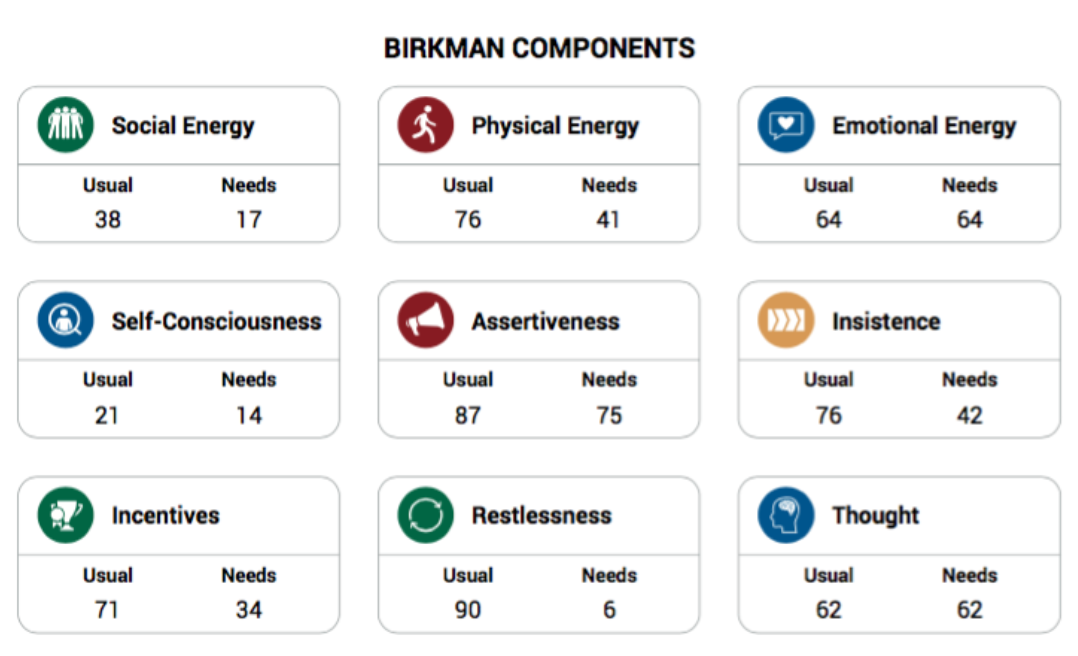Being a manager requires empathy, authenticity, and flexibility. In times of crisis, these qualities are even more necessary. Your reports will be anxious and stressed, your business will be facing new challenges, and the world at large will be...different.
I'm on the Learning and Development team at Zapier. Our team has reviewed a number of resources, listed at the bottom of the article, to compile suggestions for how managers can help their teams through a crisis. If you're reading this, you likely have a lot going on, so we're listing the tips upfront. Keep reading for more detail and specific strategies for how to implement them.
Take care of yourself first
Prioritize human connection
Support individual needs
Maintain and amplify team rituals
Lean in to prioritization
Make time for moments of gratitude
Take care of yourself first
It's classic oxygen-mask-on-a-plane wisdom: you need to take care of yourself before you can help other people. Your team takes its cues from you in terms of how to act and feel, and you can even pass stress and anxiety to your team. Just knowing that can help you take steps to control it. So do what it takes to meet your own needs first: take a day off, rearrange your schedule, set an exercise routine, practice mindfulness, connect with a counselor. That way, you can represent a force of calm for your team.
But also: continue to be authentic. Don't pretend that you're unaffected by the crisis. Instead, signal to your team that it's okay to feel stressed, anxious, and unsure. Model disclosure and vulnerability to position them as strengths, not weaknesses.
It's a delicate balance between vulnerability and strength, but one you're well-equipped to handle with your experience as a manager.
Prioritize human connection
Regular face-to-face time is important right now. Make time for 1:1s with everyone on your team despite changing schedules. Make it clear that you're available to help them feel heard and help them sort out their thinking.
But also don't force them to talk. Some people won't want to talk about the crisis or how it's affecting them. And some people will want to talk—just not with their manager. Offer the opportunity for deeper human connection, but give people the space they need.
You might say something like, "With everything that's going on, I want to make sure that you know it's okay for us to talk about this stuff in one-on-ones. And I want you to know that it's also okay not to talk about this stuff with me. I'm here to support you however I can. Is there anything that would be helpful to you to chat about?"
Support individual needs
Not everyone is equally as affected by any given crisis, and not everyone responds the same way. Some folks may need space to think. Some may crave connection or find solace in their work. There's no one-size-fits-all approach to working during a crisis. Help your teammates tackle things in the way that works best for them.
In 1:1s, talk to each member of your team about which of their needs are not being met right now. Identify the need, and then brainstorm ways to meet that need in the new environment.
Two options for frameworks that can help with this:
1. The Birkman Method. If your team has done a Birkman report (or something similar), walk through the results. On the Birkman, each of the nine components lists causes of stress and reactions that can happen when needs are not being met.

2. The BICEPS framework. This framework lists six core needs researchers find are most important for humans at work: belonging, improvement/progress, choice, equality/fairness, predictability, and significance. Discuss which of these needs aren't being met and how you can adjust to meet them.
For folks having a particularly rough time, consider pairing them with someone on your team who has more resources to draw on right now. Can they collaborate on a project together? Can they check in on each other's mental health daily? Can they have a standup meeting each day to give feedback or hold each other accountable for work?
Some people on your team will need to adjust their work schedules or take time off, especially if they're a caregiver. Some folks may be bashful about it, so be sure to bring it up. Set work schedules, expectations, and boundaries together. Check in on this every week since personal circumstances may change.
Maintain and amplify team rituals
Individual connection and focus is important, but also try to maintain as many team routines as possible. If you don't have many rituals, consider introducing a few consistent touchpoints like a weekly virtual team standup. Focusing on opportunities for social connection can be particularly helpful right now. Rituals create a feeling of grounding that teammates will look toward in times of change and uncertainty.
Consider kicking off your next team meeting with 10 minutes of a collaborative game or a fitness activity. You might play Taboo, do the NYTimes crossword puzzle together, or just try a few minutes of mindfulness or meditation together. Think about what would serve your specific team best.
Lean in to prioritization
During a crisis, people are less likely to be able to focus as well: figuring out how to stay productive in a changing and uncertain environment isn't easy. If productivity slips, address it directly with a supportive mindset. Start by asking the important questions:
How else could we meet this goal?
What can I do to help you meet this goal?
What would the impact be of moving this goal?
This is a great time to lean into rigorous prioritization. Figure out what the most important work is, and eliminate less essential tasks. Crisis time isn't business as usual, so make space for flexibility.
Make time for moments of gratitude
Teams at Zapier have done gratitude sharing as part of their team meetings. This is a great way to focus on positive things that are happening on your team. Andrew Hedges, an engineering manager at Zapier, picked up the practice at his last workplace, where they would hold a gratitude retro whenever someone left the company, but he's continued it in times of crisis:
We used a Mural board divided into two columns: (1) what we're grateful for at work and (2) what we're grateful for outside of work. Everyone added as many cards as they wanted to each column, then we took time to talk through them. Praise wasn't limited to people in the meeting! And it was really comforting to hear about things outside of work that people are thankful for.
An alternative is encouraging a minute of kindness. Have your team send an email with a genuine compliment or expression of gratitude to someone that's impacted their life or work.
Of course, each person is ultimately responsible for their own mental health. But as a manager, you are responsible for your team's continued professional functioning during a crisis. Stress and anxiety can change the way people think and act, and you need to be able to manage that, so that your team can get through the current situation and come out stronger on the other side.





